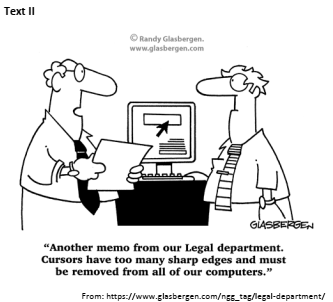Text I
The New Rules of Data Privacy
The data harvested from our personal devices, along with our
trail of electronic transactions and data from other sources, now
provides the foundation for some of the world’s largest
companies. […] For the past two decades, the commercial use of
personal data has grown in wild-west fashion. But now, because
of consumer mistrust, government actions, and competition for
customers, those days are quickly coming to an end.
For most of its existence, the data economy was structured
around a “digital curtain” designed to obscure the industry’s
practices from lawmakers and the public. Data was considered
company property and a proprietary secret, even though the data
originated from customers’ private behavior. That curtain has
since been lifted and a convergence of consumer, government,
and market forces are now giving users more control over the
data they generate. Instead of serving as a resource that can be
freely harvested, countries in every region of the world have
begun to treat personal data as an asset owned by individuals
and held in trust by firms.
This will be a far better organizing principle for the data
economy. Giving individuals more control has the potential to
curtail the sector’s worst excesses while generating a new wave
of customer-driven innovation, as customers begin to express
what sort of personalization and opportunity they want their data
to enable. And while Adtech firms in particular will be hardest hit,
any firm with substantial troves of customer data will have to
make sweeping changes to its practices, particularly large firms
such as financial institutions, healthcare firms, utilities, and major
manufacturers and retailers.
Leading firms are already adapting to the new reality as it
unfolds. The key to this transition — based upon our research on
data and trust, and our experience working on this issue with a
wide variety of firms— is for companies to reorganize their data
operations around the new fundamental rules of consent, insight,
and flow.
[…]
Federal lawmakers are moving to curtail the power of big
tech. Meanwhile, in 2021 state legislatures proposed or passed at
least 27 online privacy bills regulating data markets and
protecting personal digital rights. Lawmakers from California to
China are implementing legislation that mirrors Europe’s GDPR,
while the EU itself has turned its attention to regulating the use
of AI. Where once companies were always ahead of regulators,
now they struggle to keep up with compliance requirements
across multiple jurisdictions.
Adapted from: https://hbr.org/2022/02/the-new-rules-of-data-privacy
February 25, 2022 – Retrieved September 6, 2022
